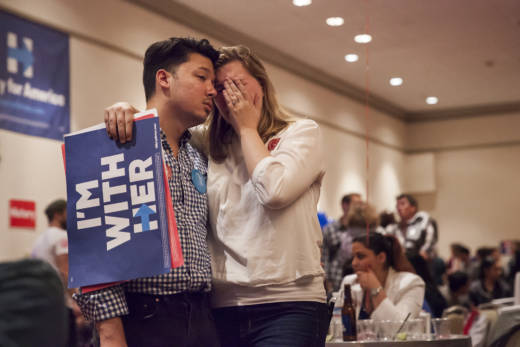Researchers also found that depression rates among residents in blue states rose in January 2017, when Trump was inaugurated. Residents 65 and older, women and white people were the groups most impacted overall, the study found.
The research team combed through reams of data from the Behavioral Risk Factor Surveillance System, an annual national mental health phone survey of nearly 500,000 participants, to identify the number of poor mental health days people reported experiencing before and after the 2016 election.
The study’s findings could help guide mental health providers in the wake of another divisive, emotionally fraught election, its authors say.
“I think what’s important about this study is we don’t traditionally think of elections themselves being a public health issue, but our study finds evidence that at least the 2016 election likely worsened mental health in a clinically significant way for voters of the candidate that lost,” said study lead author Brandon Yan, a UCSF researcher.
Meanwhile, adults in states that voted for Trump reported no statistically significant change in their mental health — not even an improvement.

